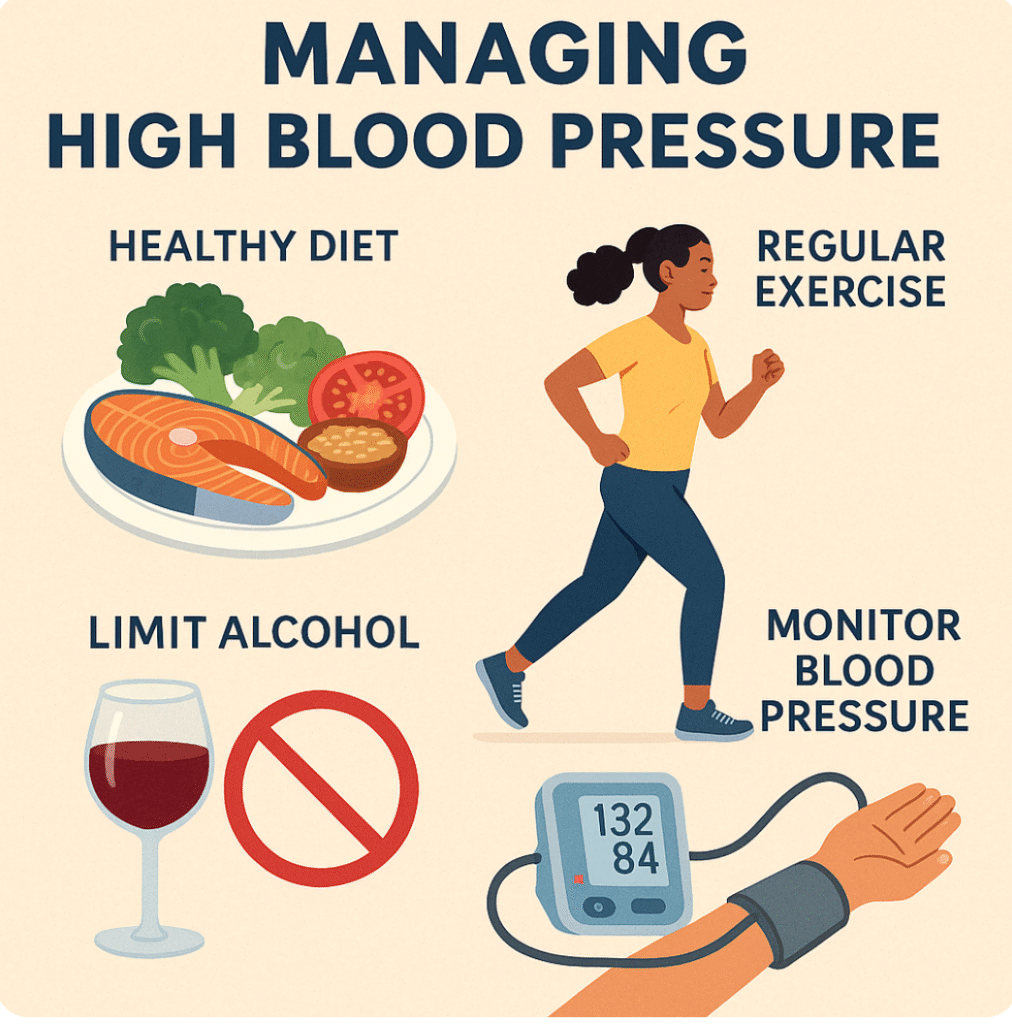Introduction
Hypertension, commonly known as high blood pressure, is one of the most widespread yet often overlooked chronic conditions in the world. According to the World Health Organization (WHO), approximately 1.3 billion adults globally suffer from hypertension, but only about half of them are aware of it. This “silent killer” gradually damages the heart, brain, kidneys, and blood vessels without showing obvious symptoms. Understanding its causes, consequences, and management strategies is essential for maintaining long-term health.
What Is Hypertension?
Blood pressure measures the force exerted by circulating blood against the walls of the arteries. It is recorded as two numbers:
- Systolic pressure (top number): The pressure when the heart beats.
- Diastolic pressure (bottom number): The pressure when the heart rests between beats.
A normal reading is around 120/80 mmHg. Hypertension is generally diagnosed when blood pressure consistently exceeds 130/80 mmHg.
Major Risk Factors
Several factors contribute to the development of hypertension:
- Genetics: Family history plays a significant role.
- Diet: High sodium intake and processed foods increase risk.
- Physical inactivity: Lack of exercise weakens cardiovascular health.
- Obesity: Excess weight forces the heart to work harder.
- Stress: Chronic stress can elevate blood pressure.
- Alcohol and smoking: Both substances damage blood vessels and raise pressure levels.
The Dangers of Uncontrolled Hypertension
Untreated high blood pressure can lead to severe health complications:
- Heart disease and stroke: Hypertension thickens arteries and increases heart workload.
- Kidney damage: High pressure damages kidney vessels, leading to renal failure.
- Vision loss: It can harm the tiny vessels in the eyes.
- Cognitive decline: Hypertension contributes to dementia and Alzheimer’s disease.
Effective Management Strategies
1. Healthy Diet
Adopt a DASH (Dietary Approaches to Stop Hypertension) or Mediterranean diet, rich in fruits, vegetables, lean proteins, and whole grains. Limit salt intake to less than 2,300 mg per day (about one teaspoon).
2. Regular Physical Activity
Engage in at least 150 minutes of moderate aerobic exercise per week, such as brisk walking, swimming, or cycling. Exercise strengthens the heart, allowing it to pump blood with less effort.
3. Limit Alcohol and Avoid Smoking
Excessive alcohol consumption and smoking damage blood vessels. The American Heart Association recommends no more than one drink per day for women and two for men.
4. Monitor Blood Pressure Regularly
Home monitoring helps detect early changes and ensures treatment effectiveness. Keep a log and consult a doctor if readings remain consistently high.
5. Stress Management
Incorporate relaxation techniques like yoga, deep breathing, or meditation. Chronic stress increases cortisol, which may raise blood pressure levels.
When to See a Doctor
Seek medical advice if you consistently record readings above 130/80 mmHg. Your doctor may recommend lifestyle changes, medications such as ACE inhibitors or beta-blockers, and regular monitoring.
Conclusion
Managing hypertension requires a combination of healthy living, awareness, and consistent medical care. Early detection and intervention can prevent life-threatening complications and ensure a healthier, longer life.
🇰🇷 Premium Korean Ginseng Online Shop







